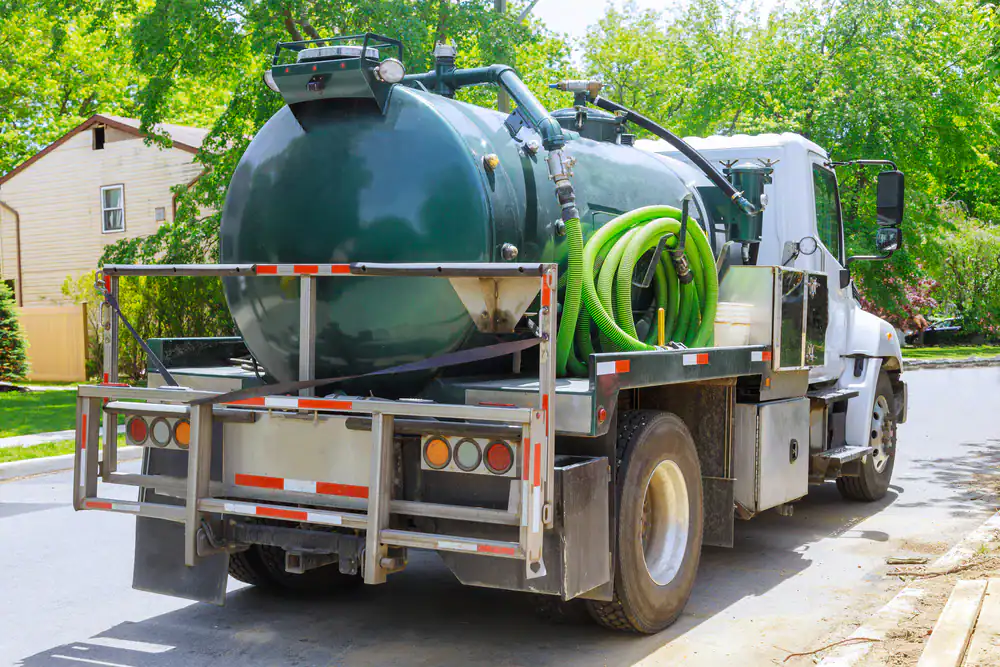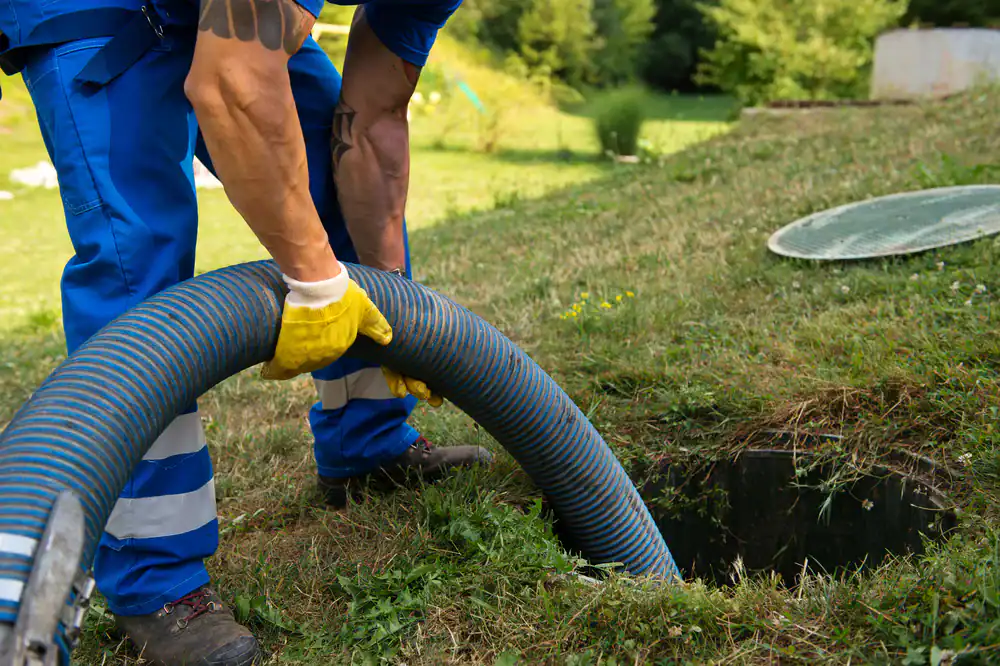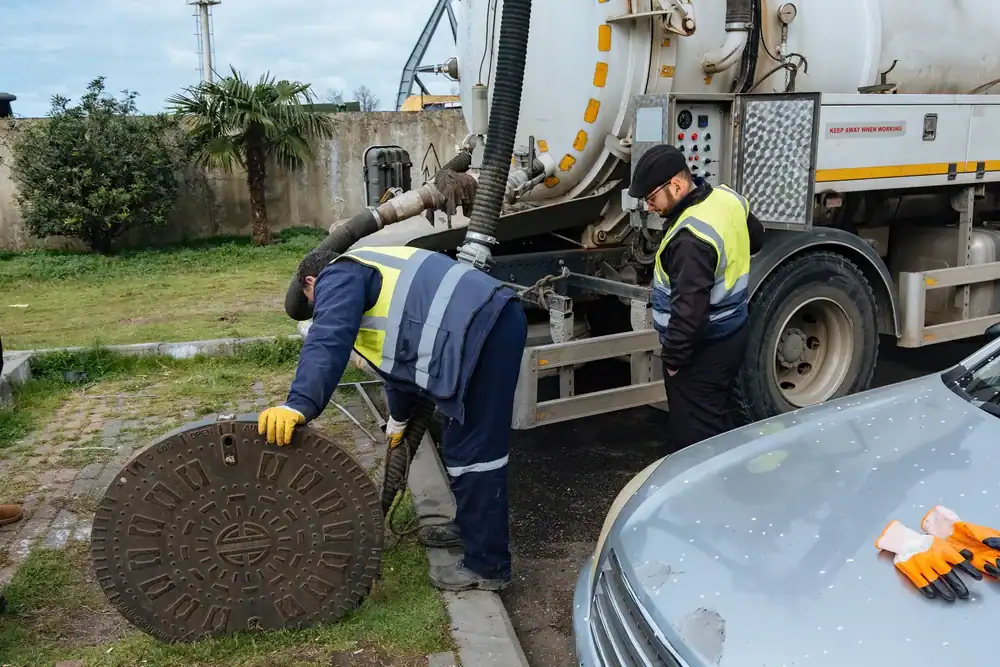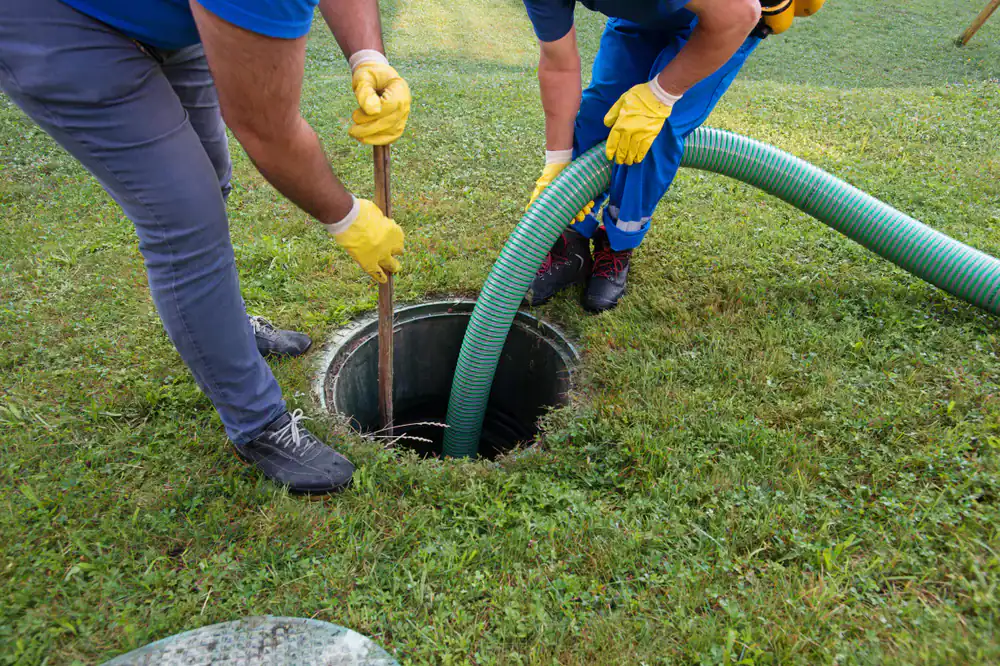
Our Reviews

You wake up to sewage backing up into your basement. Your yard smells like a swamp. Your guests are asking what that odor is.
These aren’t just inconveniences – they’re health hazards that can damage your property value and put your family at risk. When your septic system fails, every hour matters.
Our septic tank plumbing services get your system working properly again. No more foul odors. No more wet spots in your yard. No more worrying about whether your next flush will cause a backup. Just a properly functioning septic system that handles your household waste the way it should.
All Rooter Hydro Jetting Experts Inc. has been serving Inverness and the greater Chicagoland area with professional septic tank plumbing services. We are locally owned, licensed, bonded, and insured.
Inverness properties often deal with unique challenges – clay soil that doesn’t drain well, older septic systems that weren’t designed for modern usage, and strict local regulations. We understand these local conditions and know how to work within them.
When you call, you’re not getting a call center or someone reading from a script. You’re getting local professionals who’ve seen these problems before and know exactly how to fix them.

First, we arrive and assess your septic system to identify the exact problem. No guesswork. We use cameras and diagnostic equipment to see what’s actually happening inside your pipes and tank.
Next, you get upfront pricing before any work begins. You’ll know exactly what it costs and what needs to be done. No surprise charges or hidden fees after the job is finished.
Then the work gets done right. Whether it’s hydro jetting to clear blockages, repairing damaged septic lines, or restoring your drain field, the job gets completed efficiently. You’re kept informed throughout the process so you know what’s happening and when it’ll be finished.

Ready to get started?
Our septic tank plumbing services include emergency septic repairs, septic line clog removal, drain field restoration, and comprehensive system diagnostics. We handle everything from minor blockages to complete system failures.
Inverness homeowners deal with specific challenges that require local expertise. The area’s clay soil can cause drainage issues that affect septic performance. Older neighborhoods often have septic systems that weren’t designed for today’s water usage patterns. These local factors matter when diagnosing and fixing septic problems.
Emergency service is available 24/7 because septic failures don’t wait for business hours. Whether it’s a weekend, holiday, or middle of the night, help is available when your septic system decides to quit working.

Several warning signs indicate your septic system needs immediate attention. Sewage backing up into your home is the most obvious emergency – this creates health hazards and can cause significant property damage.
Other urgent signs include strong sewage odors around your property, wet spots or standing water over your septic tank or drain field, and multiple drains backing up at once. If your toilets won’t flush or your sinks won’t drain, that’s typically a sign of a serious blockage that needs professional attention.
Don’t wait if you notice these symptoms. Septic emergencies get worse quickly and become more expensive to fix the longer you wait.
Septic line clogs happen for several reasons. Tree roots growing into pipes are common in Inverness due to the mature landscaping. Flushing inappropriate items like wipes, feminine products, or excessive toilet paper can create blockages. Sometimes pipes simply deteriorate over time or shift due to soil conditions.
Professional septic line clog repair typically involves hydro jetting – using high-pressure water to clear blockages completely. This method removes roots, debris, and buildup without damaging your pipes. For severe clogs or damaged lines, pipe repair or replacement may be necessary.
The key is using the right equipment and techniques for your specific situation. DIY drain cleaners rarely work on septic line clogs and can actually damage your system or harm the beneficial bacteria your septic tank needs to function properly.
Septic drain field restoration timeframes depend on the extent of damage and the restoration method needed. Minor issues like compacted soil or surface water problems might be resolved in a day or two. More extensive restoration involving soil replacement or pipe repair can take several days to a week.
The process typically starts with excavation to access the drain field lines and assess the damage. If pipes are broken or crushed, they need replacement. If the soil is saturated or compacted, it may need to be removed and replaced with proper drainage material.
Weather conditions affect the timeline since excavation and soil work can’t be done safely in wet conditions. We provide realistic timeframes upfront and keep you updated if conditions change the schedule.
Many septic problems can be resolved without extensive excavation using modern diagnostic and repair techniques. Hydro jetting clears most blockages through existing access points. Camera inspections identify problems without digging exploratory holes.
For septic line repairs, trenchless methods like pipe lining can sometimes fix damaged pipes without full excavation. This saves your landscaping and reduces the overall cost and time of repairs.
However, some repairs do require excavation – particularly drain field restoration or septic tank repairs. When digging is necessary, we do the work carefully to minimize damage to your property and restore disturbed areas properly. We explain what’s required before starting work so there are no surprises.
Emergency septic repair costs vary based on the specific problem and the extent of work needed. Simple blockage clearing might cost a few hundred dollars, while major repairs like drain field restoration can cost several thousand dollars.
You get upfront pricing before any work begins, so you know exactly what you’re paying. No surprise charges or hidden fees after the job is done. The pricing includes the diagnostic work needed to identify the problem accurately.
Emergency service doesn’t automatically mean higher prices – you pay for the work that needs to be done, not premium rates just because it’s an emergency. The goal is getting your septic system working properly again without breaking your budget.
Septic pumping removes accumulated solids from your septic tank – it’s routine maintenance that should happen every 3-5 years. This prevents solids from building up and clogging your drain field. Pumping maintains your system but doesn’t fix existing problems.
Septic system repair addresses actual malfunctions like broken pipes, failed drain fields, or damaged tank components. If your system is backing up, creating odors, or not processing waste properly, you likely need repairs, not just pumping.
Sometimes pumping is part of the repair process – the tank needs to be emptied before repairs can be made. But if your septic system isn’t working properly, pumping alone won’t solve the underlying problem. Professional diagnosis determines whether you need maintenance, repairs, or both.